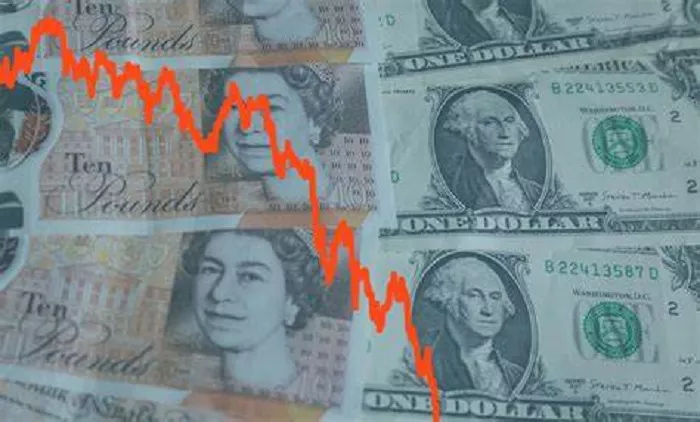The Pound Sterling has embarked on a rebound against the US Dollar as sentiment has taken a turn against its transatlantic counterpart. However, the Pound’s upward movement may be restricted by weak UK economic data, which indicates a lack of consumer spending enthusiasm in November.
Technically, the GBP/USD currency pair is tenuously maintaining its short-term uptrend, yet it remains susceptible to a potential reversal.
On Tuesday, the Pound Sterling (GBP) has climbed back into the 1.2660s as market sentiment has shifted unfavorably for the US Dollar (USD). The recovery follows a significant decline of 0.71% on the previous day. This was triggered by tough remarks from US President-elect Donald Trump, who threatened to impose 100% tariffs on the BRICS trading bloc unless it abandoned its efforts to seek an alternative to the US Dollar. Additionally, stronger-than-expected US Purchasing Manager Index (PMI) data provided further impetus to the US Dollar’s rally.
Nevertheless, it was the comments from Federal Reserve (Fed) members, notably Fed Governor Christopher Waller, that ultimately curbed the Greenback’s ascent on Monday. Waller’s indication of leaning “toward supporting a cut in December” has solidified market expectations for a 25-basis-point rate cut by the Fed in its December policy meeting. The CME FedWatch tool now calculates a probability of 76% for such a cut, up from the mid-60s previously. A reduction in interest rates is generally unfavorable for a currency as it tends to lead to a decrease in foreign capital inflows.
The Pound Sterling’s struggle to fully capitalize on the US Dollar’s stumble is attributed to disappointing UK data. The final reading of the UK PMI in November was a downside surprise, with the Manufacturing PMI plummeting to a nine-month low of 48.0, down from 49.9 in October and below the initial flash estimate of 48.6. Tuesday’s release of the British Retail Consortium’s (BRC) Like-for-Like Retail Sales data offered no respite either. It revealed a significant 3.4% drop in sales in November, following a modest 0.3% gain in October and falling far short of the expected 0.7% rise. This data bolsters the view that the Bank of England (BoE) may consider lowering interest rates in its December meeting, thereby casting doubts on the sustainability of GBP/USD’s current recovery.
The Pound Sterling has also been affected by the political turmoil in France. UK government bonds (Gilts) have experienced a sell-off following the news that French Prime Minister (PM) Michel Barnier’s minority government will face a vote of no confidence from opposition parties due to his Budget bill. Deutsche Bank’s head of macro research Jim Reid noted that this has widened the spread of 10-year Gilt yields over German Bunds to its widest since Liz Truss was PM, closing at 221.5 bps on Monday. Reid further detailed the potential sequence of events for the French government. He stated that the last successful no-confidence motion was in 1962 and that the current vote is likely to occur this week, potentially as soon as Wednesday. If successful, it would force the government’s resignation, with the government able to remain in office as a caretaker in the short term. New elections will not take place until the summer, as per the French Constitution’s requirement of a one-year wait for another dissolution. In the interim, French President Emmanuel Macron will need to propose a new PM, although there is no certainty that a new government would be more stable given the fragmented state of the National Assembly. Regarding the controversial Budget, French lawmakers will likely approve a special law authorizing the government to collect existing taxes, which could be spent “by decree”, although this would only cover public spending within the 2024 budget and not additional expenditures.
For traders focusing on GBP/USD, the key market-moving data to watch includes the US JOLTS jobs data on Tuesday and the remarks of Fed speakers such as San Francisco Fed President Mary Daly, Fed Governor Adriana Kugler, and Chicago Fed President Austan Goolsbee.
Technical Analysis: GBP/USD’s Recovery Post-ABC Correction
GBP/USD has recovered into the 1.2680s on Tuesday. Monday’s sell-off can be described as a three-wave ABC correction. This implies that the pair’s short-term uptrend from the November 22 lows is still technically intact, although it is in a rather precarious position.
Related topics:
Indian IT Stocks Poised for Further Gains as Sector Defies Broader Market Slump
Global Earth Observation Market Poised for Rapid Growth, Set to Exceed $8 Billion by 2033
India Faces Rising CNG Prices Amid Gas Shortage, Threatening Clean Energy Push


